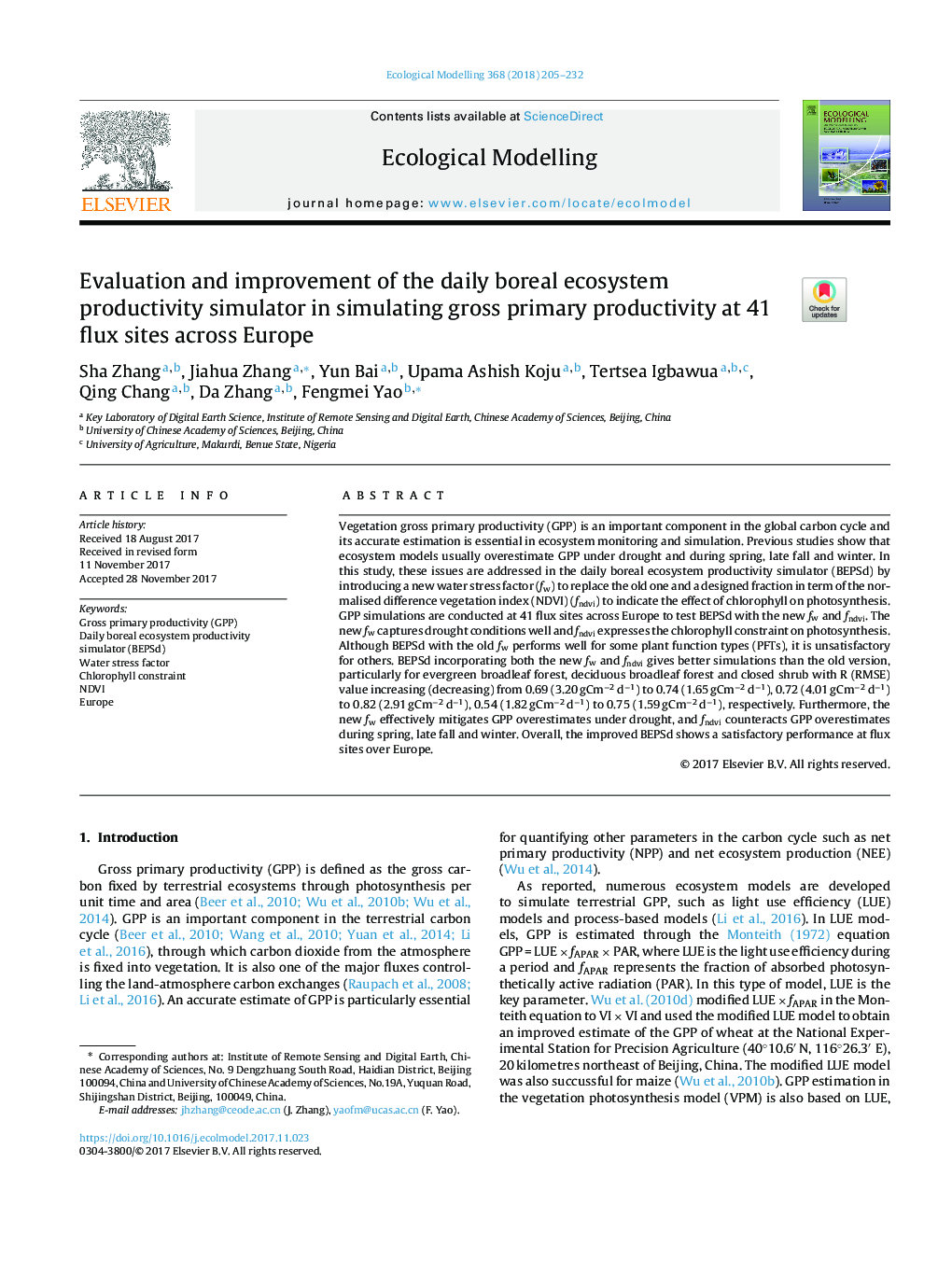| Article ID | Journal | Published Year | Pages | File Type |
|---|---|---|---|---|
| 8846144 | Ecological Modelling | 2018 | 28 Pages |
Abstract
Vegetation gross primary productivity (GPP) is an important component in the global carbon cycle and its accurate estimation is essential in ecosystem monitoring and simulation. Previous studies show that ecosystem models usually overestimate GPP under drought and during spring, late fall and winter. In this study, these issues are addressed in the daily boreal ecosystem productivity simulator (BEPSd) by introducing a new water stress factor (fw) to replace the old one and a designed fraction in term of the normalised difference vegetation index (NDVI) (fndvi) to indicate the effect of chlorophyll on photosynthesis. GPP simulations are conducted at 41 flux sites across Europe to test BEPSd with the new fw and fndvi. The new fw captures drought conditions well and fndvi expresses the chlorophyll constraint on photosynthesis. Although BEPSd with the old fw performs well for some plant function types (PFTs), it is unsatisfactory for others. BEPSd incorporating both the new fw and fndvi gives better simulations than the old version, particularly for evergreen broadleaf forest, deciduous broadleaf forest and closed shrub with R (RMSE) value increasing (decreasing) from 0.69 (3.20Â gCmâ2Â dâ1) to 0.74 (1.65Â gCmâ2Â dâ1), 0.72 (4.01Â gCmâ2Â dâ1) to 0.82 (2.91Â gCmâ2Â dâ1), 0.54 (1.82Â gCmâ2Â dâ1) to 0.75 (1.59Â gCmâ2Â dâ1), respectively. Furthermore, the new fw effectively mitigates GPP overestimates under drought, and fndvi counteracts GPP overestimates during spring, late fall and winter. Overall, the improved BEPSd shows a satisfactory performance at flux sites over Europe.
Related Topics
Life Sciences
Agricultural and Biological Sciences
Ecology, Evolution, Behavior and Systematics
Authors
Sha Zhang, Jiahua Zhang, Yun Bai, Upama Ashish Koju, Tertsea Igbawua, Qing Chang, Da Zhang, Fengmei Yao,
